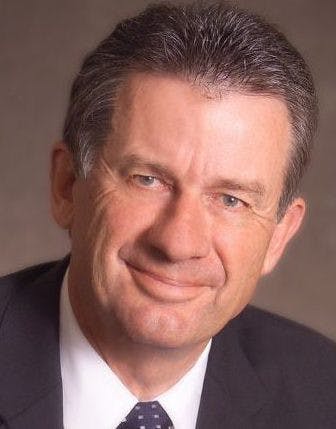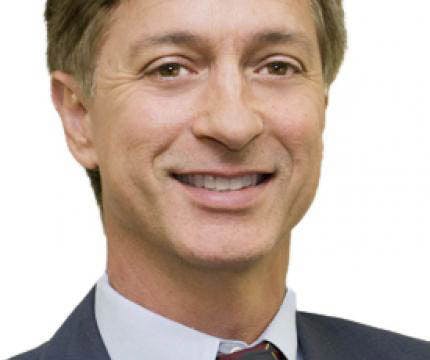The state has paid Western’s largest employment settlement in a decade to resolve a misconduct claim implicating former President Bruce Shepard and Western’s board of trustees.
The October settlement, which stipulates that Western accepts no liability, encompasses $150,000 in damages and $66,317 in attorneys’ fees — more than doubling the next largest settlement.

Filed by former head auditor Mathew Babick, the complaint alleged Shepard obstructed efforts to audit his travel expenses, including attempting to suppress distribution of the resulting report, and obstructed Babick’s access to the board of trustees committee that oversees auditing.
It also claimed that he was fired without good cause after attempting to report issues with the audit process, and the board of trustees violated legal requirements about open decision making by endorsing his dismissal in a session closed to the public.
In an emailed statement, director of Communications and Marketing Paul Cocke said the amount was a negotiated settlement.
“Although the university strongly disagrees with the allegations in Mr. Babick’s complaint, this mutually-agreed resolution allows Western to move forward without the disruption and cost of further litigation,” Cocke wrote.
Shepard, who retired in 2016, said in an emailed statement he was unaware of the settlement and the allegations, but Babick’s claims regarding him were without merit.
“I would have welcomed the opportunity, under oath, to set out the facts,” Shepard wrote.
Babick’s attorneys submitted an extensive list of over 20 potential witnesses last August, including Shepard, board of trustees members, senior administrators and an audit expert. While the settlement means much of Western’s upper echelons avoid appearing on the stand, it also means Babick’s claims were never tested in court.

In a statement, Babick said he wanted a full trial but lacked the financial resources to continue to go up against the university.
"Although the university avoided a trial, I stand by the accuracy of the violations described in the court filing,” Babick wrote. “Most importantly, that I was performing the public duties required of my position, involving difficult audits, that Shepard did not care about."
Settling was driven by concerns about facing an invasive discovery process and potentially having to pay attorneys’ fees for both sides if he did not eventually prevail at trial, he wrote.
Babick criticized the board of trustees for not allowing him to address them or be present at the meeting where they discussed his potential removal with Shepard.
“The Trustees allowed Shepard to decimate the functioning of internal audit from the ways that board policy had designed it to work,” he wrote. “And in allowing Shepard to run roughshod over internal audit, the oversight role — a key responsibility of the board's own governance — itself also failed. I observed a lack of transparency that continues today, such as the the university closing to the public their Board Audit Committee meetings."
Washington Coalition for Open Government President Toby Nixon said the potential open meetings act violation would hinge on whether Shepard or the board of trustees ultimately fired Babick. While if the board voted to fire Babick they would need to do so publicly, Shepard discussing doing so with them could be done privately.
Babick joined Western in August 2014 after 25 years of experience, including at universities in Texas and California, according to a Western Today release. The release noted that he was certified as an internal auditor, fraud examiner, law enforcement auditor and government audit professional.
At a public institution like Western, the job of an auditor — reviewing financial information to ensure there are no errors or manipulation — is especially important because other people’s money is at stake, said Nancy Pasternack, a University of Washington accounting lecturer with 28 years specializing in auditing. However, she noted auditors are also limited by what documents they’re provided.
According to Babick’s claim, when he sought to audit Shepard’s travel expenses, a job required by Shepard’s contract and delegated to him by the board of trustees, Shepard refused to provide a necessary receipt. After Babick distributed his report which noted the receipt’s absence, Shepard scolded him for not allowing him to control the report’s distribution.
Pasternack said auditors’ jobs involve skepticism and verifying things through documentation. In her years of experience, when someone refuses or greatly delays in providing necessary documents, she becomes suspicious because she’s found it often means they’re hiding more.
“Where there’s smoke, there’s fire,” she said.
Babick said that over his time at Western, he also discovered issues with how the audit process functioned and experienced further interference from Shepard.
According to his claim, when he tried to present information about best audit practices to the board of trustees committee he reported to in April 2015, Shepard removed that item from the agenda. When he tried to raise the items in the committee meeting, Shepard silenced him. (Babick said in a later email he believes that the agenda issue actually occurred at an earlier meeting in December.)
Babick’s claim says that the next day, after a board of trustees meeting in which Shepard and the board discussed his employment in a closed session, Shepard called him into his office to demand his resignation. In his statement, Babick said he was not given any reason why, but complied because Shepard said he would fire him otherwise.
The settlement was paid from the state’s liability insurance fund. Western has paid out $386,000 from the fund over the last decade in seven settlements ranging from $1,358 to $100,000.
Western currently is still without a permanent audit director. On Oct. 30, after a closed half-hour meeting, the board of trustees authorized President Randhawa to consider settlement terms with the auditor who succeeded Babick.
The internal audit office currently has an interim director in the meantime: Western’s associate vice president for Business and Financial Affairs Brian Sullivan.





